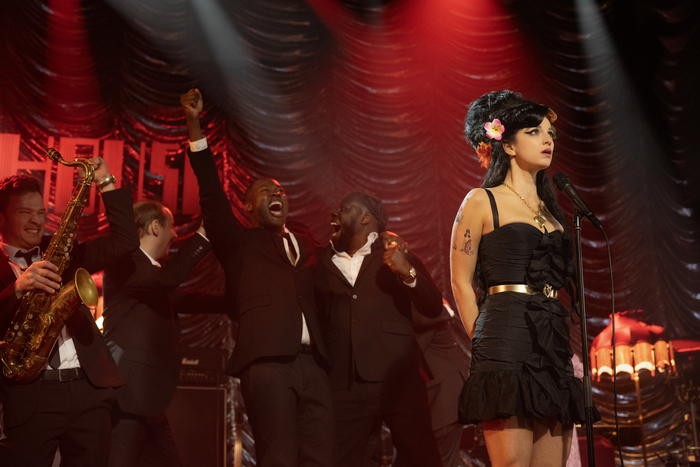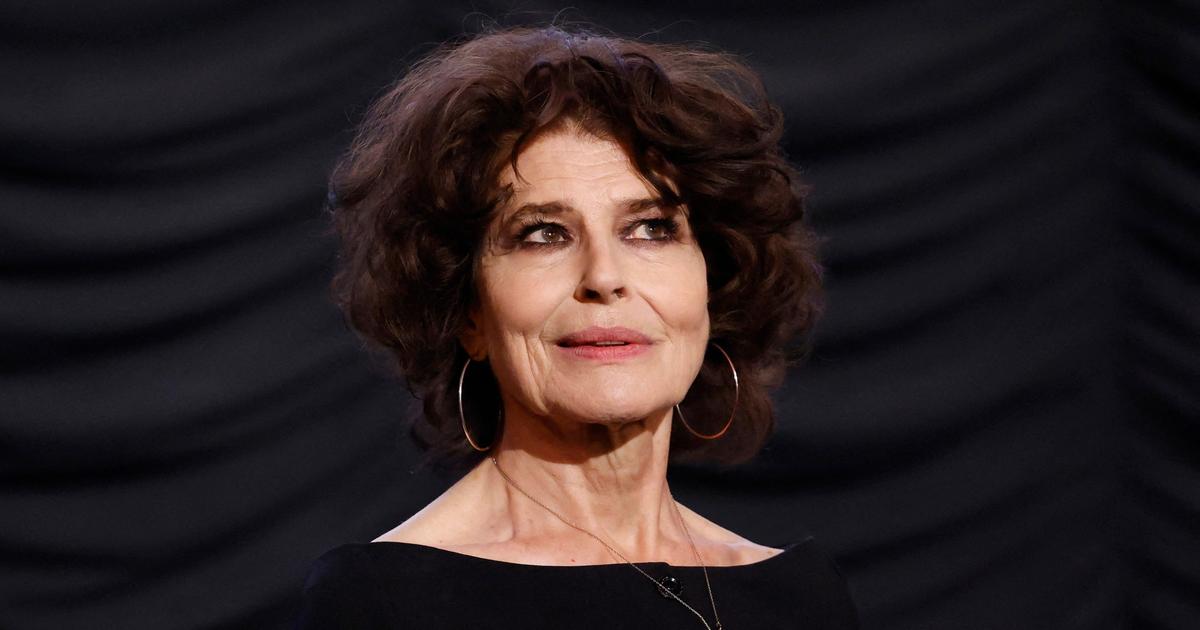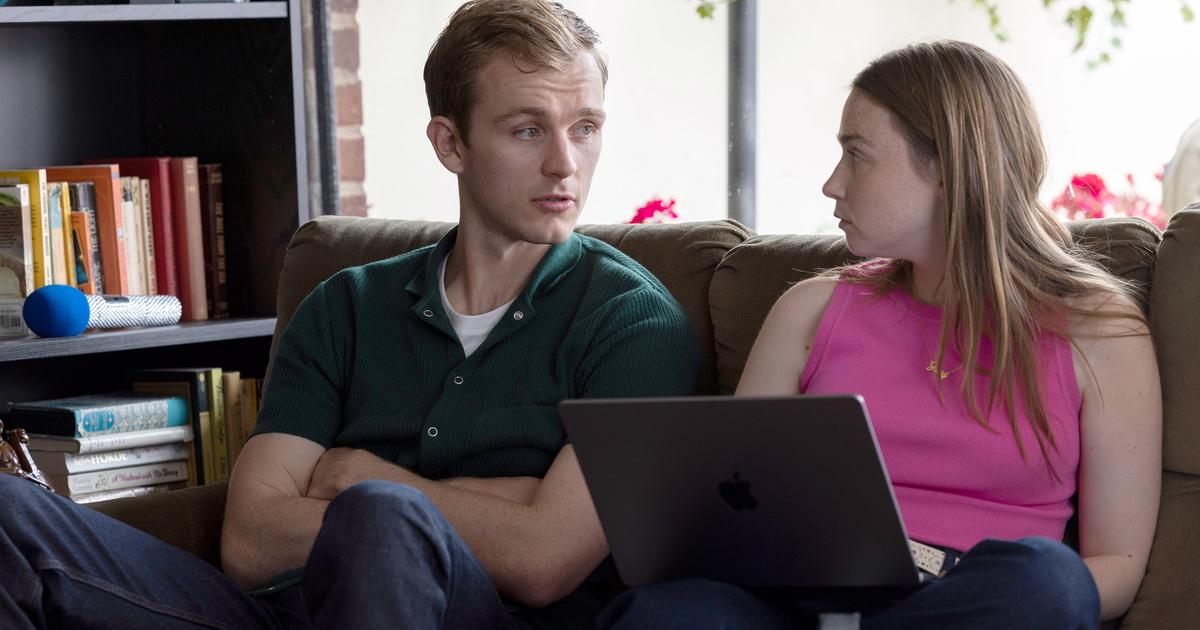Malena Solda is -and it is assumed- a bit of a producer of her life. But that resolute and organized quality – an aptitude that she admits not to abuse too much "because it takes away a lot of energy" – is just one trait that defines the actress and theater teacher: visible face of the golden milestones of the tevé and with a solid record on stage.
"I am a person who generates. That immediately is in motion, "he tells Clarín -in the framework of his return to the small screen and the theater-, discounting leisure as a natural state: "It costs me. I'm always seeing what I do, how I get it, which author is interesting or what I can read."
And, in that search, sometimes as captain (she is also a director), the interpreter who composes Ethel, a not so villainous villain in Argentina, land of love and revenge 2 (at 23, or El Trece), notices the change. "It is a moment of transition between conventional television and platforms, in the way of producing. Where the pieces are being arranged again, because in the middle was also the pandemic and that takes a while, "he says before leaving for the Regina theater.
Malena Solda and Inés Estévez form one of the four pairs of "Plagiarism". And they tell a fiery love story.
There, Inés Estévez is waiting to share the stage of Plagio, the theatrical novelty of José María Muscari with a cast "a la carte".
What is the work about?
"The big theme is bonds and love", frames on the trigger of the plot that, with four versions of the same story (the public chooses which pair to see) -and staggered functions from Friday to Sunday-, opens more than one question about it.
"The work lasts as long as it has to, it has humor to loosen the tension and various visual resources that help make it striking. It's something different from what directors usually ask me for, too. Because you know I'm an actress who can say more complex texts, so it's always, 'Let's call her to make a classic.' Muscari's is the opposite of being pigeonholed into something," he stresses.
-He was heard saying to you between dressing rooms: "Now your life at the San Martín Theater is over."
"Yes (laughs). Maybe not. I hope not! He teases me all the time about it...
"Now your life is over at the Teatro San Martín", the chicanea, with humor, Muscari, its new director.
-How do you relate to the concept of love, the thread that leads the work?
-It is fundamental, in all its forms. The couple, the mother son, the friends. Towards my mom. It is one of the pillars that sustain me, perhaps the most important.
-Does the equation change that people choose them, considering that they have other options, within the same cast?
-It's weird. I don't know yet. It's a different feeling. I like to hear my colleagues say the same text as me, in a different way. We have a very good relationship with Inés and that truth is seen on stage. It was a very important factor that she was there to say yes, in addition to the director. With Inés we had crossed paths in Truth consequence, many years ago, but no more than that.
The return to Polka fictions
On TV, Solda is Ethel, the wife of theater impresario Horacio Hillis (Juan Gil Navarro).
-Were there also reunions in "ATAV 2", with faces that you did not frequent since those golden times of TV?
-Yes, right. With Matías Santoianni. Beautiful reunion! We hadn't worked together since Gasoleros in '98. So, imagine. We are other people...
"How did he remember you?"
"I don't know, you would have to ask him. At that time we did not record so much together, but I remember him very happy, with a lot of enjoyment and so am I, but more cautious. More looking for a place, in a success that was tremendous. But with more care.
-Treading slowly...
-Yes, more cautious. And when you grow up you assert yourself and you are no longer so afraid of certain things. I think it had to do with the fear of ridicule.
Did you turn down a lot of jobs because of that?
Yes, I probably would have taken more risks. But, with Monday's newspaper, everyone is Gardel. I had to know myself as an actress. And it was a lot of carrying my own expectations, and a little bit of others, too.
Are you vulnerable to the gaze of the other?
-Not today. I've already learned what my parameters are. And, if the other's gaze enters into that, I take it. Or I say: that's your opinion, but it's not what I'm looking for.
Hand in hand with Daniel Craig
-But you dared to do the casting for the "Bond Girl"...
-Yes, they were looking for a Latina, because the character was originally from Bolivia. And between I don't know how many actresses we did casting I was among the 3 finalists. I traveled to London, did the camera test with Daniel Craig, met the director, the producer and finally... He hit the stick and didn't go in. I thought: they were wrong. "How do you want me to be a Bond girl if I'm a text actress?" But since I'm at it, I better have fun...
-Are you still having fun?
-Yes, very much. There is also a part where I register the nerves, but I have fun at the same time. If I don't enjoy, the audience doesn't enjoy.
Ethel and Horacio, a couple from the '80s, with the framework of the theater of magazines.
- When did you understand it?
-When I studied in London (I did a postgraduate degree in classical theatre at LAMDA, London Academy of Music & Dramatic Arts). We had a teacher who told us: 'When you are between legs – before going on stage – breathe, enjoy, enjoy, enjoy, enjoy'. And I kept repeating it to myself.
-Could you go away for a while today or do you have a family dynamic very anchored here?
-I have a dynamic very anchored to Argentina, but I also have a partner who supports me and with whom we always talk about this. We say to ourselves: 'If something like this were to happen, first you say yes and then we see how we manage, because we managed'.
And he travels backwards: "My dad worked in Russia and traveled regularly to Moscow. And my mom, a writer and teacher, worked in an airline, so airline tickets weren't a problem. One of my brothers went to live in Milan when he was young and my other brother, whenever he could, traveled the world for several months. It was part of the family's values."
The reunion of the "boys" of Montaña rusa, the youth strip that in 2024 turns 30 years old.
Retaking the television circuit, that familiar space to which she returns from time to time, marks her now that it is not the same television in which she did school: "I started at a time when the channels produced. Later they did producers like Polka, Sebastián Ortega or Gastón Portal. Now it's the platforms."
Malena & la TV
-Did it cost you to get involved in projects that merit your return to fiction?
-A little, yes. But that's good, because every platform production model today brings its own ways of telling stories.
Solda in "Soy gitano", with Arnaldo André, Osvaldo Laport and Antonio Grimau.
-You started on another TV and you return to one that today has it very difficult ...
-Yes. Or that it simply does not prioritize fiction.
Are you worried I won't?
- Yes, it worries me. I feel sorry too. Because authors, directors, actresses and actors are part of our cultural heritage also as a society. In addition, it does not necessarily involve a lot of money. You just need a good book, good actors and a good director. Everything else, the decoration, is secondary.
And he proposes: "New formats could be sought, which do not involve an extraordinary expense. In the '80s, in Britain, a playwright, Bennett by surname, wrote Talking Heads, a program of monologues of great actresses in front of the camera. And how much could it have cost? Perhaps, you have to get more creative from the book. I regret that it is not the priority, but they are cycles and hopefully it will pass, "he acknowledges.
"Because the advantage of producing the channels is that we make the decision ourselves, too, about what, how and when, while on platforms there are two million filters that one does not know and the decision is made externally to artistic issues," she explains, stuck in a situation.
-"ATAV 2" is the only Argentine strip on the air and the numbers do not accompany. Why doesn't it work if people were asking so much for the return of fiction?
- I don't know that. It is very difficult to know why something is successful and why it is not. If we had the formula everything would be a success. I don't think it's so much like that, that nobody looks at it either. Because everyone talks to me about Ethel (her character, wife of a theatrical impresario). Maybe the channel waits for a rating amount to be able to charge an advertising run at a certain value. But, nowadays, people don't just look at it in the air. He does it when and where he wants and those numbers don't count for them. But there is an audience there too.
-Not counting the schedule swings, which do not help and the straw that overflowed the glass: the cutting of scenes.
-They told me from the channel that this was not going to happen anymore. What's more, I hadn't even found out. When they told us it wasn't going to happen anymore, that's when I found out it was happening. I was very lucky with the fictions I did: Truth consequence, Gasoleros, Good neighbors, I am gypsy, The rich do not ask for permission, Murderous women, Tell me how it happened and Roller coaster, which next year turns 30 years old.
-Do you think that the current grid, with pure reality and Turkish can, reflects what people want to consume?
Yes, I think people want to keep them company. Many young people played Big Brother and did other things with that in the background. And the life of those characters, inside that house, accompanied them. As if there was the radio. So can fiction, but today Turkish novels, which are melodramas in the most traditional style, cover that place.
-Do you find company on TV?
-Sometimes I put it on. When I'm tired and I don't want to watch something on a platform, because it means I'm more active as a viewer... It happened to me, during the summer, on Saturday nights, to stay watching programs in Volver. Marriages and something else or Woman, woman, free yourself', with Mirta Busnelli, a find.
-You said that everyone talks to you about Ethel: an advanced woman for the time, being a producer in the '80s, and on top of that so planted.
-It seemed important to me to mark it. Because the character is also defined in his links around. Not only with the husband, but with the vedettes, with lighter roles. And I liked putting it somewhere else, since not all women are the same. Also with their human traits and vulnerability, because showing nuances is more believable.
And, with a master's degree in period fiction, he shares: "I'm one of taking things from novels I've read, movies or situations I observe on stage. When we recorded ATAV, I was doing Julio César and I watched Moria Casán a lot and there I found material."
-Today you can see yourself in a scene of "Roller Coaster" after almost 30 years? There's always the comment, "Time doesn't pass you."
-(Laughs) Yes, time passes, but it gives me tenderness to see where I worked, from intuition and play. That today I maintain, but there I was unconscious.
A figure since he was 16, Solda experienced another rollercoaster: that of premature fame. "In another era it was magazines and it's part of the game, but I don't feel like an actress anymore because it's on a cover or not. Obviously it helps to have a lot of likes and followers, but it is not the most important thing. It never was in my life," she says and, even in the age of networks, plants flag: "I don't expose my life because I don't feel comfortable with it. I am not there. It doesn't give me freedom, quite the opposite. I am very low-key."
-But you have social networks.
"Yes, but I try not to expose my family. I am somewhat impressed by those boundaries that are blurred between private, public and intimate life. Showing intimacy to the world doesn't seem good to me.
And, blunt with the windows of his intimacy, he reflects: "I understand the morbidity or the need, but not everything has to be shared all the time. My son (Teo) is young, but I think it's important that he already understands what exposure entails, because as a teenager, if not, it can be very harmful, with the vulnerability that entails."
See also









